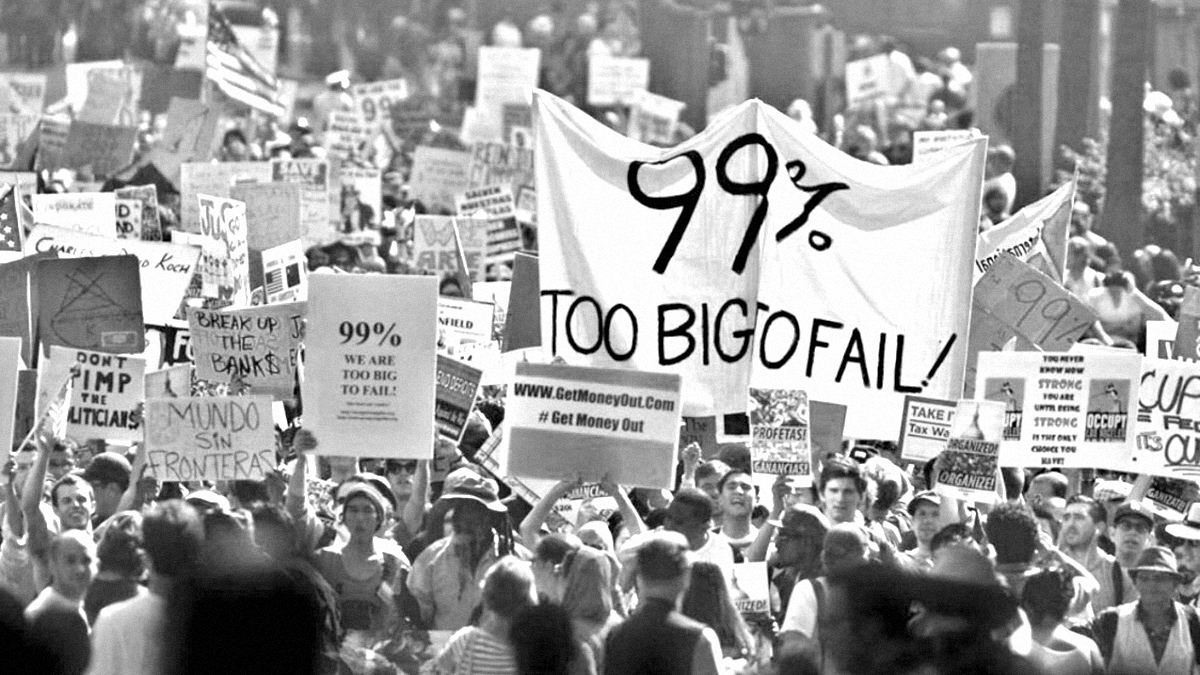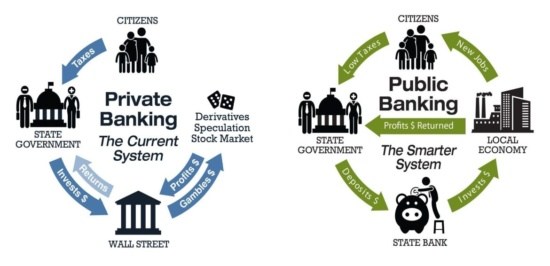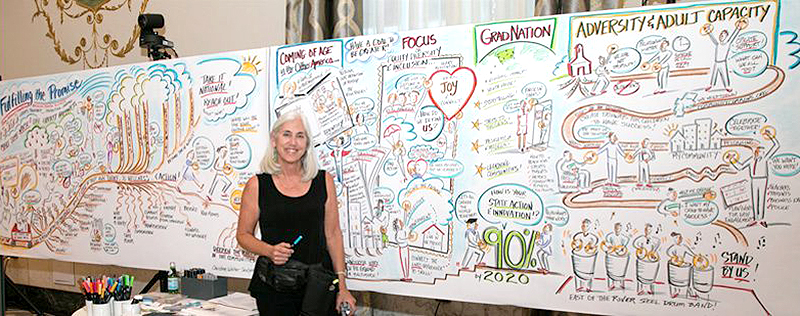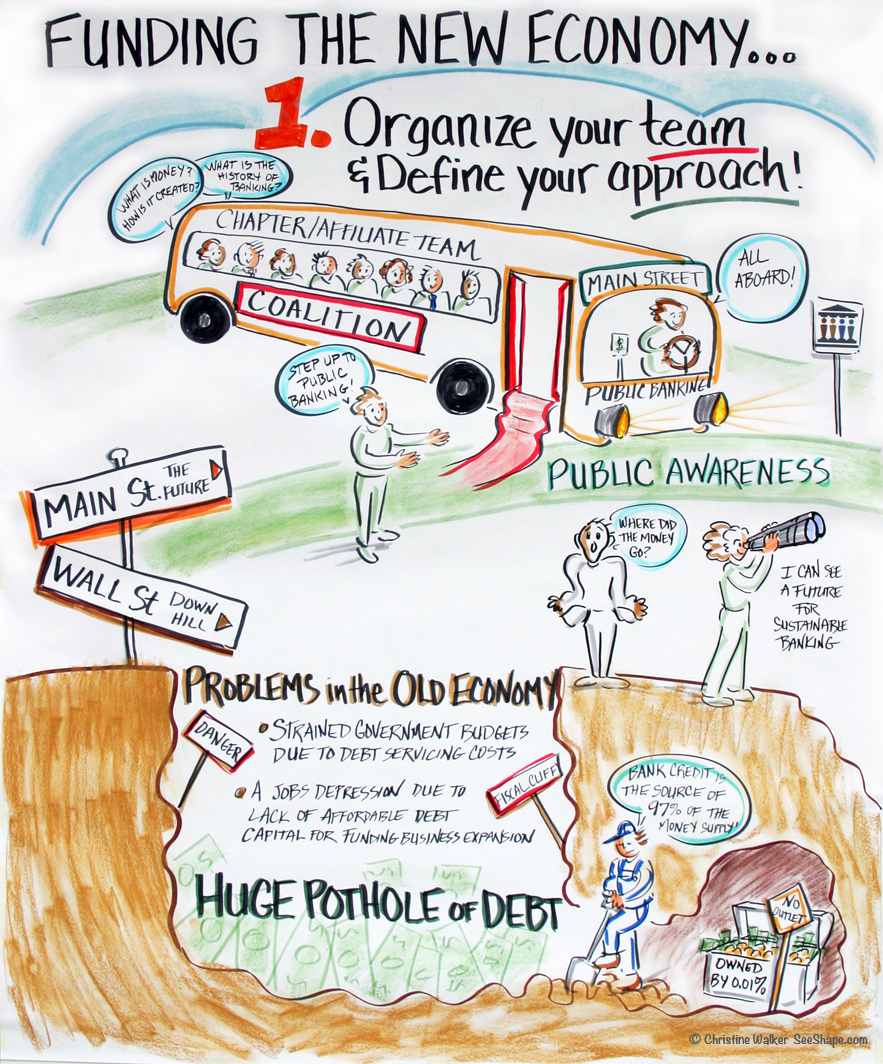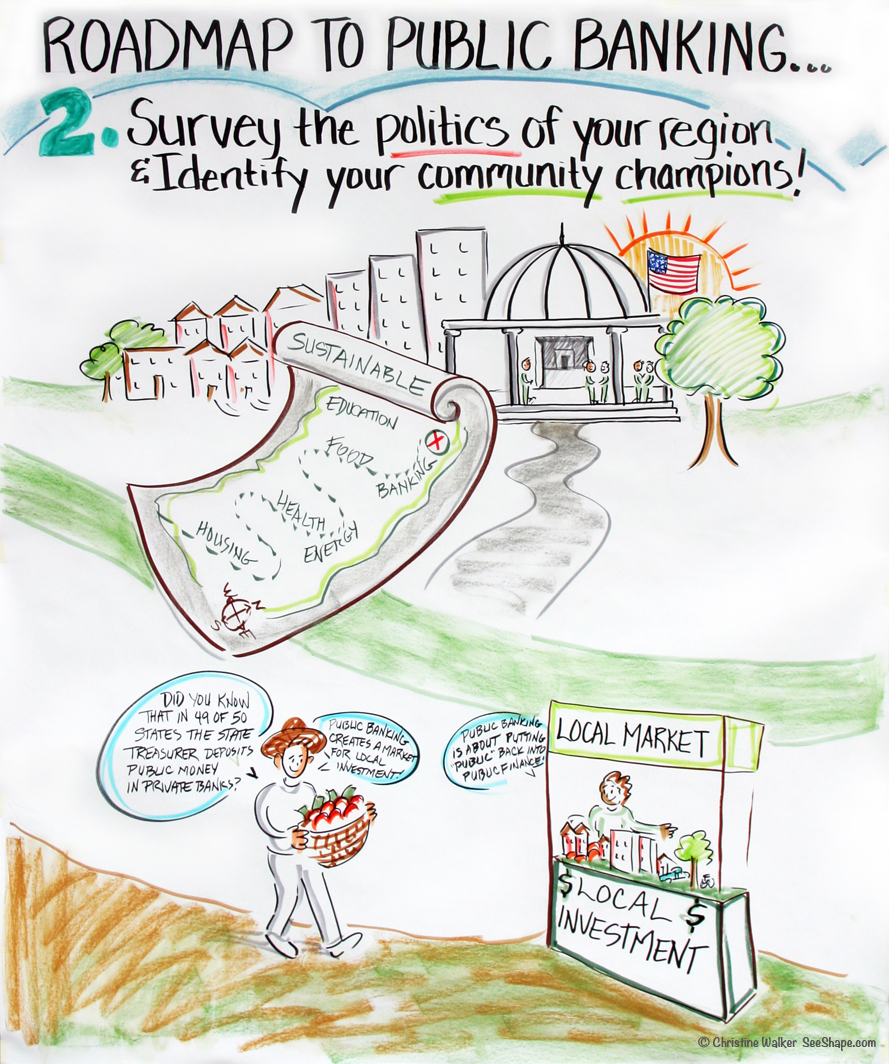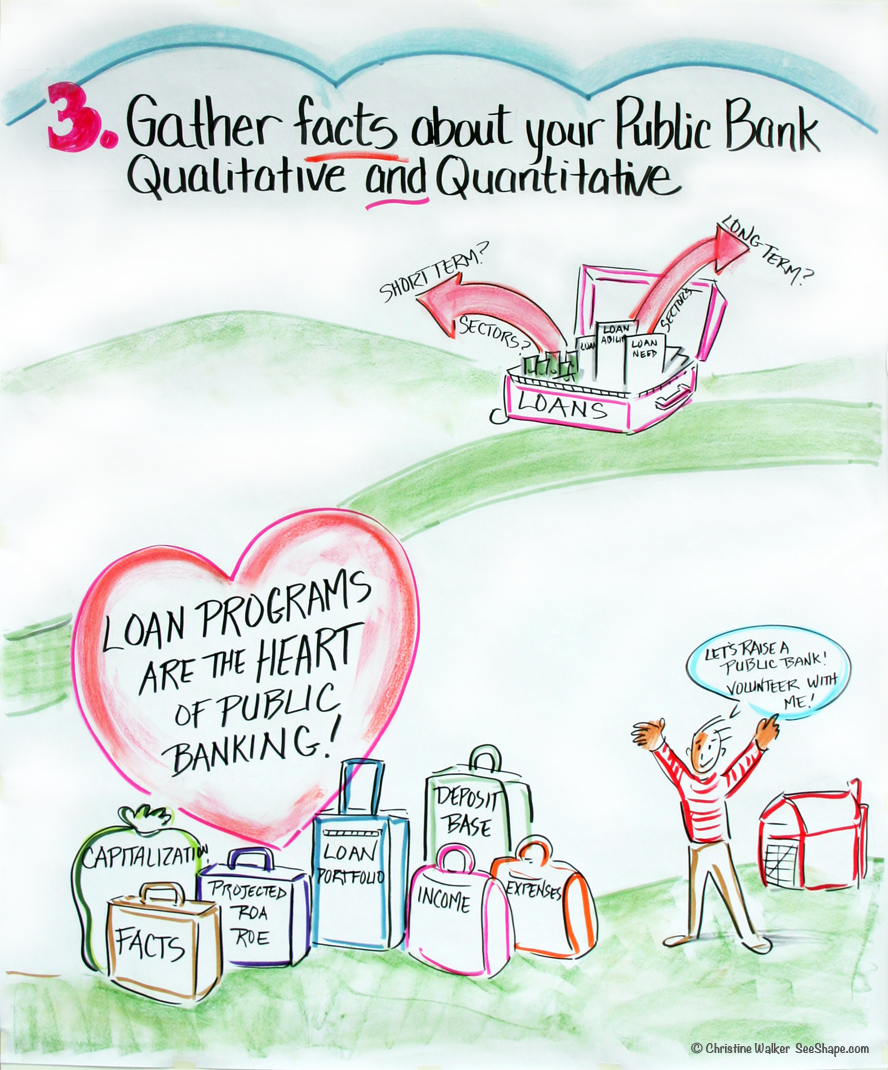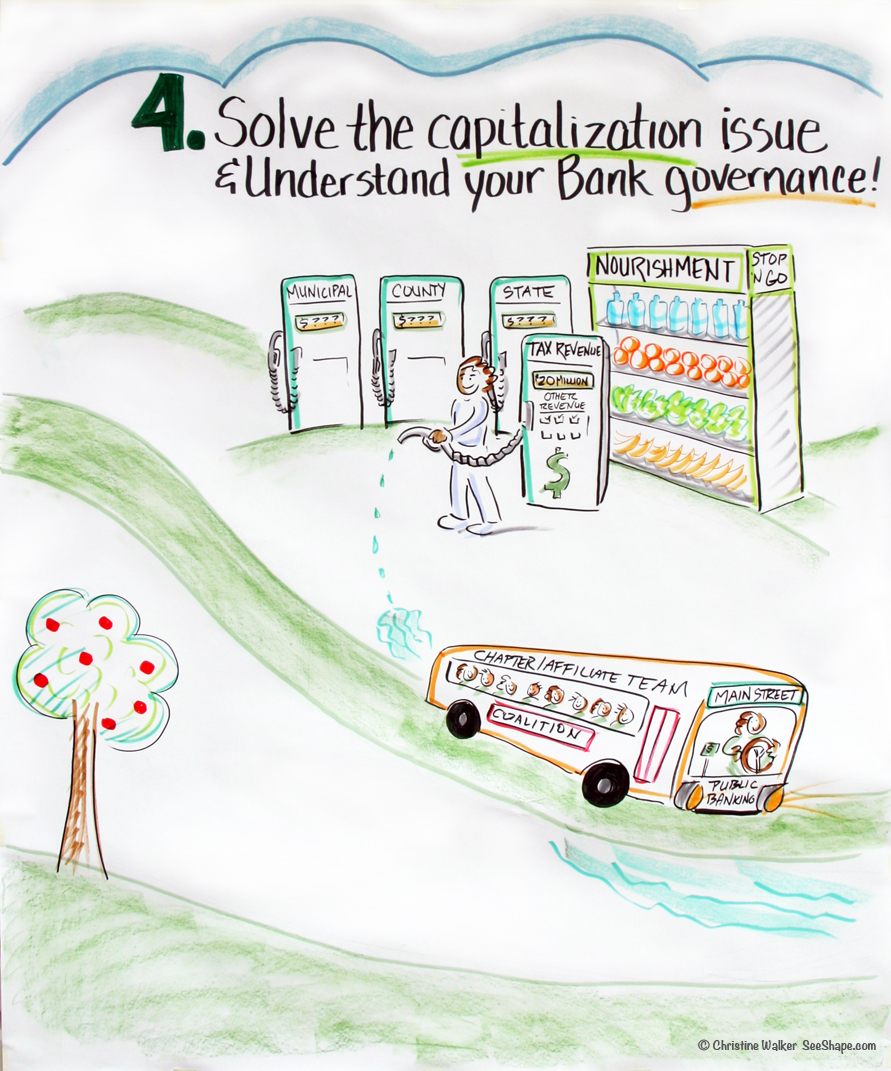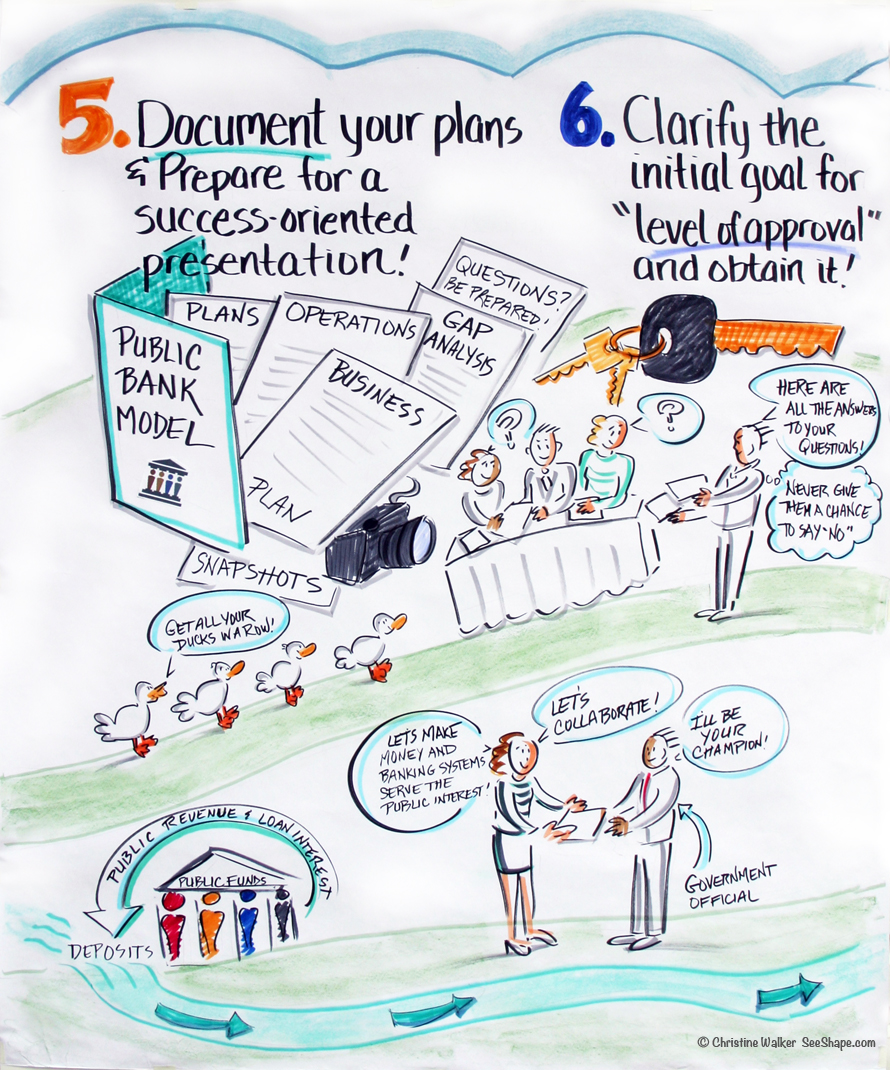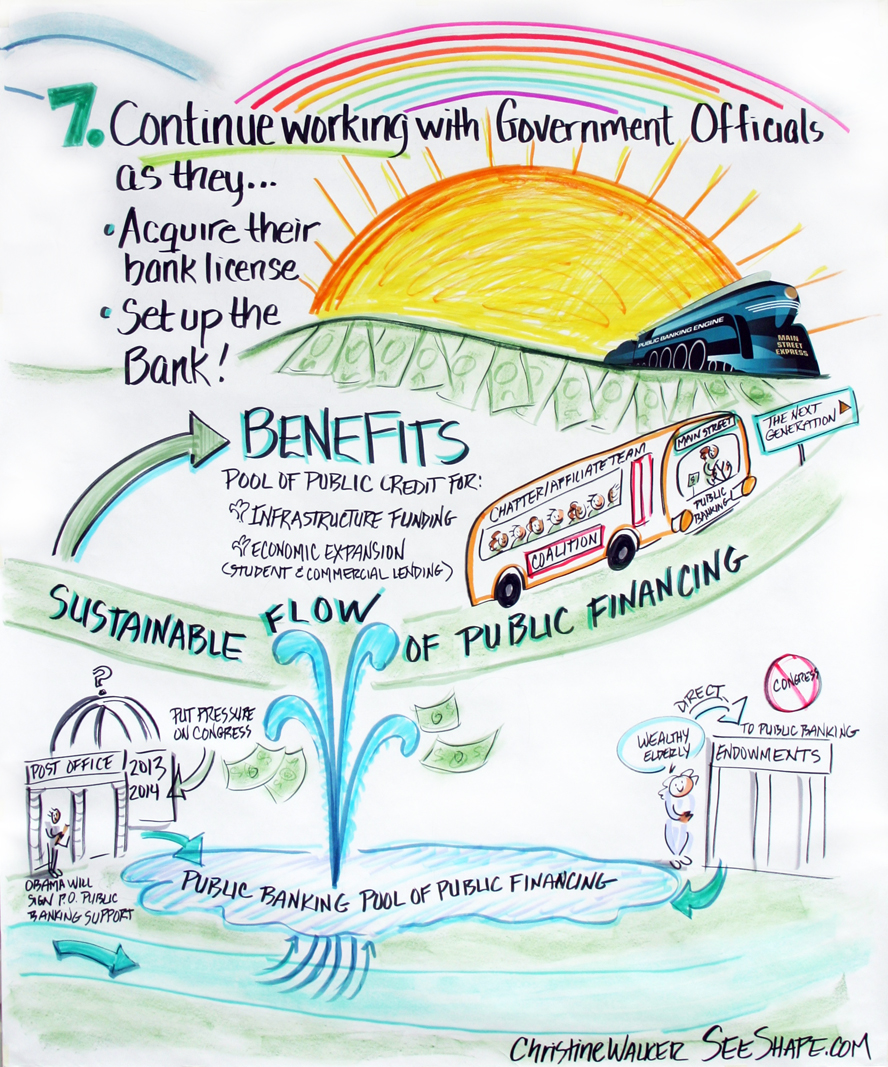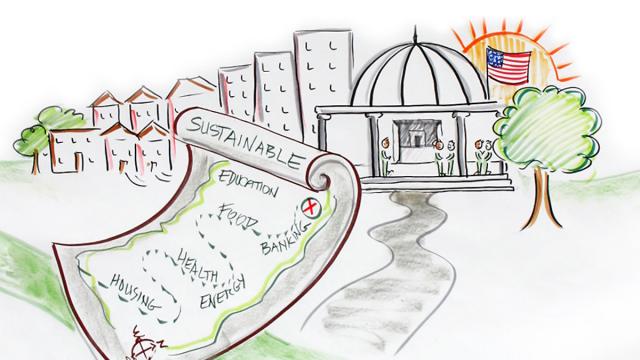
This is Part 10 in a 10-part series on public banking and economic justice. Read parts 1, 2, 3, 4, 5, 6, 7, 8 and 9
If Los Angeles voters choose to lift the city’s ban on government-run banking services this November, the battle for a public bank in that city won’t be over. It will just be getting started, and the barriers will be enormous.
Los Angeles residents will vote whether or not to amend Section 104(g) of the City Charter as a prerequisite to the city forming a municipal bank. But this only means voters will have authorized a public bank – not voted for the formation of one. Feasibility studies, hearings and testimony, and, inevitably, backlash from proponents of private banking, will follow. Not all the interference will be engineered by Wall Street lobbyists. Some of it will come from purportedly neutral experts on banking who simply haven’t contemplated that banks ought to be public utilities instead of private enterprises.
Despite Los Angeles currently having one of the most robust, militant and energetic public banking movements anywhere, risk-averse public officials may well decide to stall on creating a public bank in the city. They might offer weaker or watered-down alternatives. They might end up rejecting the idea altogether.
The only thing that will stop them from delaying or killing the vision of public banking is the sheer numerical and moral force of activists, in the thousands. Nothing less will guarantee that Los Angeles gets its public bank. If there is not unyielding public demand, there will be no public bank.
When Voting Doesn’t Matter
If you think I’m exaggerating about the difficulty of creating a public bank even when most of the people want once, consider Vermont. In 2014, “19 Vermont cities and towns voted on a measure calling for the Vermont Economic Development Authority, a statewide finance lender created in 1974, to be turned into a public bank. Fifteen approved the notion.” Vermont state Senator Anthony Pollina and five of his colleagues introduced Senate Bill 204 to direct the state government to deposit ten percent of its funds into the public bank.
But the legislation never passed, and Vermont never got its bank. Instead, in a compromise, the legislature authorized $350 million in local investment and lending in the state.
Who was Vermont compromising with? Not the voters. Rather, the state compromised with the private banking industry, which had vociferously opposed a public bank using its usual array of faulty arguments. The watering-down was not the result of voters changing their minds, or of activists in Vermont lacking good enough arguments, research and skilled advocates. It was the result of lobbyists from big banks throwing dust into the eyes of policymakers, and those policymakers being unwilling to fight for a purely public vision.
Layers of Ideology and Bureaucracy
Similar defeats of public banking measures have happened in numerous other cities and states. Part of the problem is that policies don’t change without layers of bureaucracy in the form of feasibility studies and consultation with experts.
There’s nothing inherently wrong with experts or even bureaucracy. As our experience with the Trump administration demonstrates, it’s nice to have people in government who know what the hell they’re doing. But where financial reform is concerned, and particularly radical reforms like public banks, the problem is that the experts are all from the private financial sector, and they don’t care about our egalitarianism, our core values, or our vision of an economically just society. So we have to make them care, and that requires us to use the only means available to us: public displays of will.
To see how the ideological deck is stacked against public sector financial institutions, we can look at Colorado’s state Banking Board. This Board has sole decisionmaking power over the granting of charters for banking in the state. Although their decisions can be appealed to Colorado’s courts, those courts almost never reverse Banking Board decisions, and don’t even require the Board to be consistent with the facts presented in its hearings. Instead, courts defer to the industry expertise and experience of Board members.
Currently, the Board consists of the president of Alpine Bank, the CEO of Fowler Bank, the CEO of NBH Bank, the president of Young Americans Bank, the president of First Bank, a lawyer from Great-West Trust Company, the senior vice president of Western Union Financial Services, and two members of the public. No one from the public sector is on the board; no public servants, no labor union representatives, not even any representatives from credit unions. What do you think these folks are going to think of proposals from a movement premised on the corruption and insolvency of private sector banking? What are they going to think of proposals that would eliminate the profit-making monopolies of private finance?
Similarly, in Santa Fe, New Mexico, a banking task force recently rejected a proposal for a public bank in the city. Five out of nine members of the task force were from the private financial or real estate development sector (in one case a corporate finance lawyer), three were public officials, and one was an activist for Santa Fe's public banking advocacy group. Slightly better odds than Colorado’s Banking Board, but still heavy on the commercial and private finance side.
And so it goes in Oakland, San Francisco, Seattle, and so it will go in Los Angeles: Most city and state governments require that officials consult with experts before implementing reforms, and where banking is concerned, those experts are all tied to the neoliberal and capitalist ideologies of banking for profit. That doesn't mean they’ll ultimately reject public banking, but presumption will weigh heavily against it.
While nobody is arguing that only advocates and public banking zealots should be on these committees, we should not be surprised if their recommendations lean strongly in favor of maintaining the status quo. They don’t see private finance, even Wall Street finance, as part of the problem.
Good Ideas Are Not Enough
The biggest flaw thus far in the strategic vision of many public banking advocacy groups is the assumption that public officials and financial experts must be won over first, and that sitting down with a group of them, or having one-on-one meetings with them, ought to happen prior to building mass movements. As we’ve outlined in several articles in this series, that assumption is changing, and activists are building coalitions of groups concerned with economic justice, environmental reforms and renewable energy, divestment from corrupt private banks and fossil fuel portfolios, and more. That’s a good start.
But mass movements require more than hundreds or even thousands of people. In big cities like Los Angeles, Philadelphia or Seattle, we need supporters of public banking to number in the tens of thousands. At this point, it’s not even clear that there are ten thousand people in America who think public banking is a good idea. That’s a problem.
Mao Zedong may have been wrong when he said that political power only emerges out of the barrel of a gun. But political power does require the force of numbers. Apart from the rather anomalous and still-uncertain fate of the public bank in American Samoa – an anomaly that emerged from a very unique problem in that territory and which won’t be replicated in the states – the only successful campaign for a public bank in America in the last hundred and fifty years came in North Dakota, where a group of radical farmers, running on a radical platform of public ownership of financial institutions, took over the legislative and executive branches of that state government a century ago. And they barely managed to stay in power long enough to implement the Bank of North Dakota.
It’s that kind of energy, unending commitment, and radical vision of economic justice that is needed to establish public banks in cities and states today. Nothing less will get us there.
READ PARTS 1, 2, 3, 4, 5, 6, 7, 8, 9, 10
Matt Stannard is Policy Director at Commonomics USA and a member of the Public Banking Institute’s Board of Directors. Matt Stannard writes about cooperative economics, law, politics and culture. His blog is Cowboys on the Commons. Click to read more by Matt on Occupy.com.

